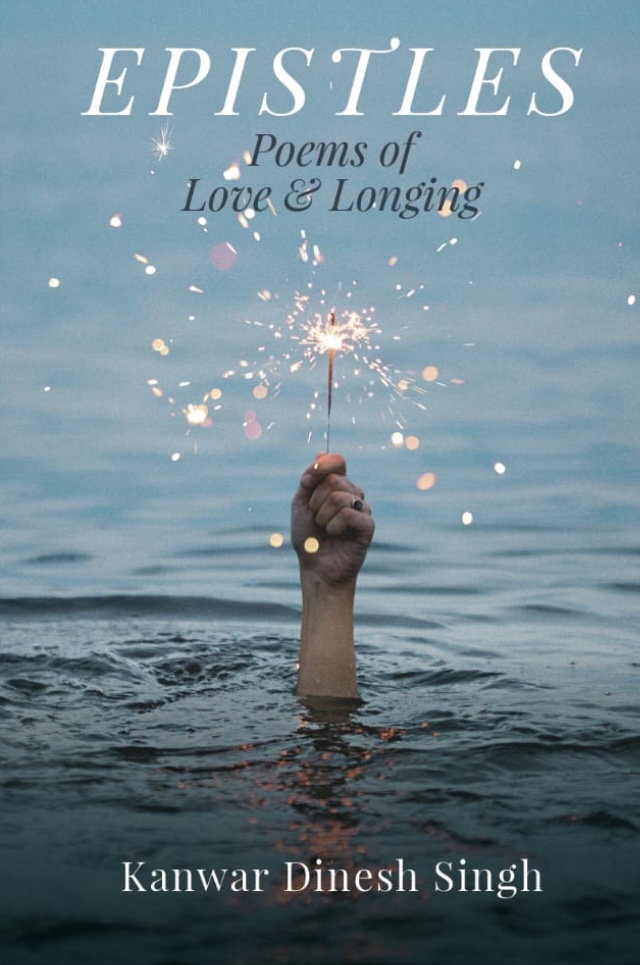Prolific poet Kanwar Dinesh Singh writes many different forms of poetry, including short poems, epigrams, haiku, and free ghazals. His recently published volume, Epistles: Poems of Love and Longing, is a collection of fifty connected poems in the epistolary form, centred on the overarching theme of love.
These poems remind the reader of the epistles of ancient Roman poets like Ovid, who used this poetic form to depict love affairs with intense romantic fervour. Singh’s epistles bear strong feelings of directness and immediacy of passion toward the object of love (the beloved). These poems read like internal monologues, addressing the beloved in several ways through pleading, complaints, promises, assurances, and patience.
In these poems, a reader savours varied sentiments of love between man and woman, which are linked to experiences of both union and separation. The imagery and wording of these poems aptly express the tender feelings and passionate cravings of the lover’s heart. In each poem, the lover directs a message to his beloved: that their heart is ready to sacrifice everything for love.
In the opening poem, the lover avows (to his beloved): “My soul will carry even beyond death ― / All that I have received from you, my love.” The lover demonstrates a strong grudge against the objects of nature for not standing by him in his hours of despair: “I resent / any air that doesn’t bring me your news. / . . . What good is a sun / that doesn’t show me you?”
In some poems, Singh creates a Donnesque prospect through images from diverse objects of nature as well as the everydaylife and milieu: “Love lives to the tale in vast tundra, vacant desert.” To Singh, love is “the potent victor of time” —the zest of being together with the beloved emboldens the lover to ‘conquer’ and even ‘renounce the whole world’. In “We Shall Resume the Continuum of Love,” he goes even further, proclaiming, “We shall carry beyond death —/ . . . / shedding the dead skin of doubts and dilemmas / we will meet and conquer time. . .”
Singh’s poetry encompasses both physical and spiritual dimensions of love. The poem “Union” begins with the sensuous craving of two bodies— “Let us hold tight in my embrace, / such that even the thinnest trace of air is / not able to pass between us.” The piece then ends with the spiritual longing of two souls—“United two souls / such that our feelings become the same, / our thoughts / and dreams and hopes, / one.”
Eminent Indian poet K. Satchidanandan justly remarks in the blurb that these poems “take us back into the golden age of romantic poetry, while their metaphors have a touch of our own time.” Australian poet Rob Harle rightly endorses that this book is a “veritable treasure chest of heart-stirring love poems.” Indeed, these love poems are a rewarding read.
(Prof Shiv Sethi is a noted columnist and literary critic based at Ferozepur,Punjab.)


